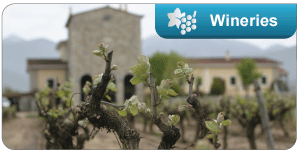Modern times
Greece was ushered into modern times (1945-1975) with most of its infrastructure and productive potential ruined after World War II and the ensuring bitter civil war. It was reduced to a mere viewer of global wine developments. The main bottled wines that were exported were retsina, a unique albeit controversial wine, Mavrodaphne, and the PGI Samos wines. At the same time, enormous quantities of mostly high-alcohol and dark-colored wines traveled in bulk to be blended with or fortify European ones. The only optimistic note was struck by the Greek islands, most of which had remained unscathed by phylloxera, preserving thus hundreds of native grape varieties while the continental areas of Greece gradually introduced pest-resistant rootstocks grafted with cuttings resilient to phylloxera.
The presence of large cooperative wineries (in Crete, Rhodes, Samos, Nemea, Patras, Naoussa, Santorini, Tyrnavos, etc) and of large, private winemaking concerns (Boutari and Tsantali in Macedonia; Kourtakis in Attica), all of which invested in modernized equipment, led to the absorption of considerable volumes of grapes and to the production of commercial wines of fair quality. During that same period of modern times (early second half of the 20th century), exports of bottled wines began from renowned vineyards of continental Greece such as the vineyard at Nemea, Naoussa, and Mantinia whose lack of easy access to commercial ports had kept their export activity low in comparison with the vineyards on the islands and the coastline.
Modern times also saw the first classification of Greek wines 25 centuries after the ancient Greeks had been sealing amphorae to safeguard the authenticity of their contents (1971) . The first designations of origin of Greek wines are legislated following the French model of wine legislation. In contributing to this effort, the Wine Institute, headed by its charismatic director, Stavroula Kourakou, produced an impressive body of research into Greek wine. Mrs. Kourakou and her colleagues’ multi-faceted task led to showcasing the timeless wealth of the Greek vineyard and the new Greek wines, paving the way for many of the historic vineyards of Greece to acquire legislative recognition and protection as well as the right to display their name on their wine labels. In later years, around the time that Greece became a full member state of the (present) European Union, Local Wines also gained legal recognition. Ever since then, legislation, winegrowing production and the wine market have been directly aligned with the rest of the European Union. It was also during this period that the establishment of Greek wine agencies took place.


